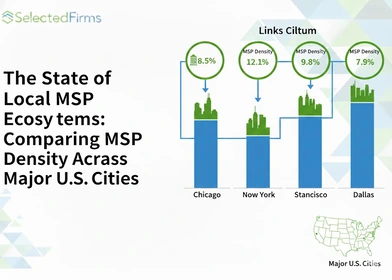Table of Contents
Unlock the secrets to building an SEO-friendly online store. Maximize your sales with actionable insights and expert guidance tailored for e-commerce growth.

Businesses striving for success and expansion in the modern digital market must have an online store. Having a website is not enough though; your online store must be search engine optimized to attract traffic and convert visitors into customers.
Creating an SEO-optimized online store calls for several approaches, ranging from choosing a suitable domain name to ensuring your hosting is reliable and your content is optimized. Here's how to make your own online shop that is SEO-optimized.
1. Choose an SEO-Friendly Domain Name
An efficient online store is mostly dependent on a carefully selected domain name. Your domain should be short, unique, and should fit for your business. To improve your search engine results, it should ideally contain a term related to your industry of business or product range.
If you market handcrafted jewelry, for instance, a domain such as "handmadejewelryshop.com" tells search engines and users exactly what your website is about.
Beyond that, search engines and users still regard domains ending in.com as the most reliable and well-known. Starting off on the right foot with a well-chosen domain name boosts confidence and search engine optimization.
2. Invest in Reliable Hosting
Search engine optimization is heavily dependent on your website's hosting. Google ranks sites using algorithms that take into account elements including website speed, uptime, and general user experience.
Thus, it is essential to choose a hosting service that guarantees quick page loads, safeguards your data, and has low downtime. Website speed affects search engine optimization (SEO) in two ways: first, it annoys users, and second, it increases the bounce rate.
Make sure your hosting service offers SSL certificates for added security. Nowadays, HTTPS is a ranking consideration; an SSL certificate tells search engines and users your site is safe, therefore boosting your credibility and SEO performance.
3. Optimize Your Online Shop for Mobile Devices
Having a mobile-optimized online store is absolutely essential given more than half of all website traffic comes from mobile devices. Due to Google's mobile-first indexing priorities, your mobile site will likely rank higher than the desktop version. Consequently, you should use a website builder with responsive design to make sure your online store runs perfectly on tablets and smartphones.
Your store will be more accessible and easier to navigate with mobile optimization, which enhances user experience and SEO. Lower bounce rates, more interaction, and improved search engine results will all follow from a mobile-friendly website.
4. Leverage SEO-Friendly Website Builders
The exposure of your online store can be significantly enhanced by using a website builder like one.com with SEO features. Select an e-commerce platform that gives you easy access to meta tags, alternative texts, and URLs when you're building your online store.
Optimizing your metadata guarantees search engines know what each page of your site is about, thereby increasing your chances of ranking for relevant keywords.
5. Create High-Quality, SEO-Optimized Content
In SEO, content is absolutely vital. Your material's relevance and usefulness will help draw traffic and keep people interested. While written naturally for visitors, make sure your product descriptions, blog entries, and other site material are bursting with relevant keywords. Steer clear of keyword stuffing since this can lower your results.
Think about including a blog to your online store so you can post industry news, advice, and insights. In order to boost your search engine rankings over time, it is recommended that you update your material regularly. Search engines see this as a signal that your site is active and relevant.
6. Implement a Clear Site Structure
A well-structured site helps crawlers from search engines navigate your website in addition to users. This enhances the user interface as well as the possibility that search engines will rank your online store higher.
Use a straightforward and simple hierarchy to build an SEO-friendly structure. This usually entails:
- Homepage: Users land mostly on this page
- Category Pages: Group similar items into categories (such as "Men's Clothing" or "Electronics")
- Product Pages: Every product should have an individual page containing specific details
A neat structure also helps internal linking—that is, the ability to link related items or articles. Your "How to Choose the Best Winter Jacket" blog post, for instance, should have links to your winter jacket category page or specific product sites. Internal links not only direct visitors but also enable search engines to grasp the hierarchy and value of different pages on your website, thus improving your SEO.
7. Optimize Product Descriptions and Metadata
Your product page text should be search engine and user optimized. Your search results can be much improved by naturally including relevant keywords into your product descriptions. Every product description should contain:
- Primary keywords: Make sure that the terms you use would be typed by possible consumers into a search engine.
- Unique copy: You shouldn't copy-paste manufacturer descriptions. Rather, give every product original, interesting descriptions.
- Features and Benefits: Clearly state product features and highlight the advantages the item offers for consumers.
Apart from product descriptions, remember to maximize the metadata of every page—titles, meta descriptions, headers, etc. What shows up in search engine results is the meta title, which must include important keywords. Although it's not a direct ranking consideration, your meta description should be strong enough to inspire users to click through to your website.
A handmade leather wallet's product page might, for instance, include a meta title like "Handmade Leather Wallets | Premium Quality & Free Shipping" and a meta description stressing its workmanship, materials, and advantages.
8. Use High-Quality Images and Alt Text
Images are important for e-commerce, and they also have an effect on SEO. Excellent visuals enable consumers to better grasp what you have to offer, thereby increasing their likelihood of purchase. Large image files might, however, slow down your website. Therefore, it is imperative to compress them without sacrificing quality.
Alt text is another important SEO factor for photos. This material explains the image's content for search engines, therefore improving the ranking of your website in image search results. Descriptive alt text should include important keywords. For a product image, for instance, you might substitute "Handmade Leather Wallet - Brown" as your alt text rather than "image1.jpg."
Including alt text not only raises your search engine results but also increases the accessibility of your website to people with visual disabilities, thereby improving the whole user experience.
Wrapping Up
Maximizing your sales potential depends first on building an online store optimized for SEO. You can build an online store that ranks higher in search engine results and draws more consumers by choosing the correct domain name, making investments in dependable hosting, making use of an effective website builder, and following basic SEO best practices.
Start with a solid foundation by concentrating on ground-up SEO and see how well your online store performs. Maintaining high ranks and driving sales over time requires constant effort, so keep in mind that SEO is a never-ending process as you develop and expand.
Recent Blogs
Scaling Smarter: How Property Management Software Simplifies Rental Management
-
10 Feb 2026
-
6 Min
-
34
The State of Local MSP Ecosystems: Comparing MSP Density Across Major U.S. Cities
-
06 Feb 2026
-
7 Min
-
260









